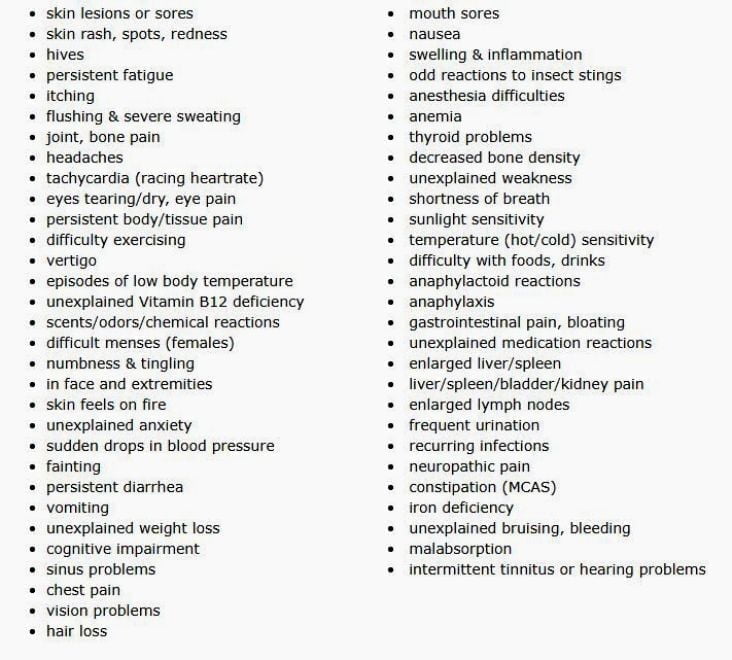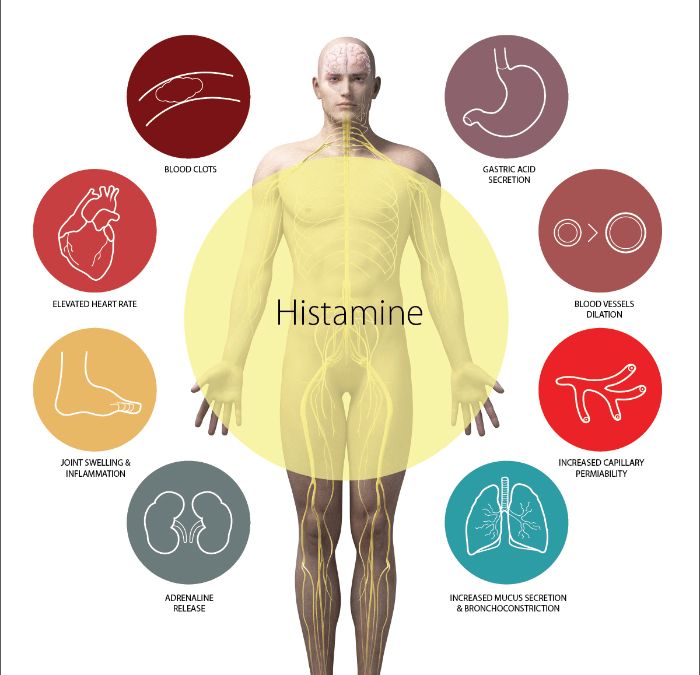This post is going to be merely an overview of mast cell activation and its relevance to IBS, SIBO, dysbiosis, and H. pylori. It’s designed to give the reader information that may have not been shared before as well as hope that there is still can be a resolution to their GI condition.
I have been treating patients for more than 33 years. Over the last 15 years, I have witnessed the percentage of my GI-related cases have more than doubled. I have also found that most of these patients are convinced that their symptoms are caused by H. pylori, even though diagnostics only support the presence and nothing more. These patients come in after one, two, and even three courses of antibiotics and months on PPIs. Still, they present with the exact same symptoms that they started with (abdominal pain, bloating, gas, heartburn, change in bowel habits, brain fog…) with some now experiencing even worse symptoms. Why is this happening and what can be done to help those in this situation?
You will find that if you have researched SIBO, IBS, or H. pylori the information below will sound very similar to what you have previously read. That’s because there is a direct association between mast cell activation and the above conditions. The lucky ones are those that get targeted therapy and experience complete resolution. Those that don’t – this post is for you.
Professional Note: The common denominator I have found with most unresolved GI cases is chronic stress, anxiety, and/or worry. The complete resolution of symptoms is more dependent upon getting this under control than me designing the perfect protocol. I do work with all of my patients on this and I do explain how anxiety/worry impacts their case.
Mast cell activation syndrome is thought to be a common, yet under-recognized, chronic multi-system disorder caused by inappropriate mast cell activation. These patients frequently report gastrointestinal symptoms and are often mistaken by physicians as functional gastrointestinal disorders.
Mast cells react to allergens (food, environment), tissue trauma, and infection (dysbiosis) and quickly respond by releasing biologically active mediators, including histamine and other inflammatory compounds.
Gastrointestinal disorders from mast cell mediators often present with apparent irritable bowel syndrome, diarrhea, constipation, dyspepsia, chronic or cyclical nausea, a lump in the throat, abdominal pain/discomfort, and heartburn. The bummer is that Individuals with mast cell activation syndrome experience significant delays in diagnosis.
The image below shows common symptoms associated with mast cell activation syndrome. most of my GI patients will also complain about experiencing a number of non-GI-related symptoms that were not present before their GI symptoms started.

The gastrointestinal symptoms are often resistant to symptom-targeted prescription medications (PPIs…). Beyond avoiding triggers, the best therapy is directed at modulating mast cell activation and the effects of the mediators.
As the GI condition persists the patient will begin to experience increased anxiety, intolerance to once-tolerated foods, as well as increased severity of symptoms listed above.
If you aren’t testing, all you are doing is guessing.
As a medical detective, clues are mandatory for me to solve a case. No clues and I’m merely guessing at the cause or how it’s impacting the patient’s biology.
I have a few mandatory tests to assist me in solving any GI-related case. The first is a GI-Map. This test shows the overall state of the GI tract. Read more about that test here. The second is a comprehensive blood panel. This will tell me about how this condition has impacted the patient or if there are co-issues that may be complicating their recovery. The third is an Allergen Profile, 95 Foods, IgE test. I may not start with this, but if we reach a sticking point this test usually provides that last piece of information we need for a durable resolution.
Once we have enough clues, the case can be closed.
After a thorough consultation and completing all the diagnostic tests needed, it’s now time to create an individualized protocol.
https://advancedhealing.com/sibo-doctor-located-in-orange-county-ca/

I descended into a dark place after developing cold urticaria last year. My stomach pain brought me great suffering, but I never imagined that it would manifest into chronic hives. Standing in pain with a broken spirit and fear that I ruined my body, I sought out natural cures to heal my stomach. I first redesigned my diet & cut out coffee, sugar, dairy, gluten and eggs (followed Dr. Terry Wahls therapeutic diet protocol). Thankfully I came across your blog & realized there could be a connection to h pylori. I built out a natural 3 week treatment plan & just recently took a Helicobacter pylori Antibody IgE blood test. The reference range was 0.00-0.79, my results came back 0.21 which the lab indicated was “normal” (Negative <0.80). I would like your thoughts on this result & if this would indicate that my treatment plan was successful. Your blog has been an amazing resource and has reminded me that hope shines even when there are days when my spirit is shrouded in darkness.
Kate,
A blood test is not a reliable post-treatment test. I would do a stool antigen test (best) or a urea breath test.
Respectfully,
Dr. Ettinger